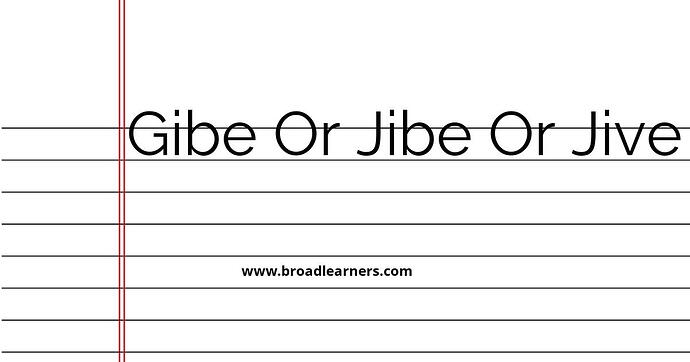'Gibe,' 'jibe,' and 'jive' are commonly confused words in English grammar. Understanding the difference between 'gibe,' 'jibe,' and 'jive' is important to use them correctly in written and spoken English.
'Gibe' is a noun that means a mocking or taunting remark. It is used to describe a sarcastic or insulting comment.
'Jibe' is a verb that means to agree or be in harmony with something. It is used to express agreement or compatibility.
'Jive' is a noun and a verb that refers to a style of dance or a form of slang associated with jazz and African-American culture.
Let's take a closer look at the meanings and usage of 'gibe,' 'jibe,' and 'jive'.
| 'Gibe' | 'Jibe' | 'Jive' |
|---|---|---|
| The word 'gibe' is a noun that means a mocking or taunting remark. | The word 'jibe' is a verb that means to agree or be in harmony with something. | The word 'jive' is a noun and a verb that refers to a style of dance or a form of slang. |
|
|
|
To remember the difference between 'gibe,' 'jibe,' and 'jive,' it can be helpful to associate 'gibe' with a mocking or taunting remark, 'jibe' with agreement or harmony, and 'jive' with dance or slang.
Here are some examples of correct usage:
- He couldn't help but make a gibe about her outfit. (mocking remark)
- Her explanation didn't jibe with the evidence. (didn't match)
- Let's jive to the rhythm of the music. (dance)
- He enjoys using jive language with his friends. (slang)
Remembering the correct usage of 'gibe,' 'jibe,' and 'jive' will improve your grammar and communication skills.
